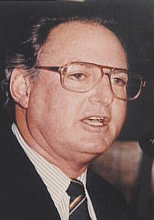COLOMBO– West Indies’ head coach Ottis Gibson isn’t disturbed by Thursday’s eventual decision to defer the scheduled limited-overs series against Sri Lanka to late January.

“It hasn’t really hurt us, that’s for sure,” he said as the team prepared to leave for home in the early hours this morning after persistent wet weather that dogged the tour from the start led to the postponements of the five
ODIs and one T20, originally carded over the final two weeks.
Inevitably, perhaps, Colombo enjoyed its first complete day of sunshine yesterday after weeks of late monsoon downpours and floods.
“If anything, it gives us match practice and allows us to use different combinations just prior to the World Cup so that we can start the tournament better organised as a team,” he noted.
Even so, Gibson said the postponement was especially tough on the four players who joined the team in Sri Lanka last week, specifically for the short-format matches.
“I feel specially sorry for (batsman) Kirk Edwards, the only one who was looking forward to his first appearance for the West Indies at the top level,” he added.
“He hardly got a chance to get his bat out of his kit bag far less get a game.”
Chief executive Ernest Hilaire said yesterday that the West Indies Cricket Board (WICB) “will now work with Sri Lanka Cricket to ensure that the matches are rescheduled to a time when the weather is more favourable for cricket”.
Indications here are that the series is to be held in late January and reduced to three ODIs, all at the Premadasa Stadium in Colombo. The West Indies would likely remain on for two already carded World Cup practice matches, against Kenya on February 12 and Sri Lanka February 16, also at the Premadasa.
Gibson acknowledged that the rescheduling was likely to scupper the preparation camp scheduled for Barbados January 27-February 7.
“We won’t have the tightness that such a camp gives to a team,” he said. “The one in Barbados that preceded this trip was beneficial.”
“We’ll just have to find time when we come back to get together as a group as we did then and really talk and plan meticulously about how we’re going to go about playing in the World Cup, what we want to achieve out of it and what we think is realistic.” Gibson accepted that the weather was the decisive factor in the decision but, like much of the Sri Lankan media, he was critical of the state of the Premadasa and Pallekelles Stadiums, venues of the second and third Tests, and the new Mahinda Rajapaksa Stadium in Hambantota, named after the Sri Lankan president, which was to host the first and second ODIs. All are being prepared for the World Cup. Beyond the boundary, they were in a clear state of unreadiness with the majority of stands still under construction even while play was in progress. Spectators were confined to small sections deemed safe.
“We were told that they were passed for international cricket but then you walk from the dressing room to the nets and you’re walking under scaffolding,” Gibson said. “Everybody knew it wasn’t ideal to be playing international cricket but the decision-makers decided not to do anything.” “The teams had to deal with it and, if we speak out, we are in danger of being fined or suspended or whatever,” he said. He described the conditions at Hamantota as the worst of the three.
He observed that a group of International Cricket Council (ICC) officials had inspected it only a week earlier, assessing its readiness for (two matches in) the World Cup two months away.
“That’s fine but you still have to look at an international match that was supposed to be going in this week,” he added. “We look forward to coming back because you can see that they will all be fantastic venues when they’re completed but, at this stage, they weren’t ready at to host international cricket,” he insisted.









